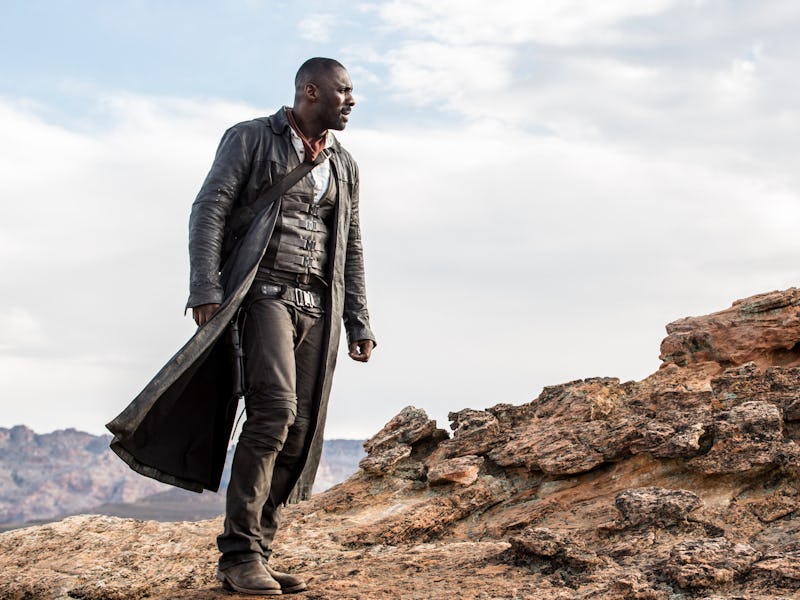How a Haunting, Epic Poem Inspired 'The Dark Tower'
Exploring "Childe Roland to the Dark Tower Came" and its impact on Stephen King.

In 1982, American author Stephen King released The Gunslinger, the first volume of King’s self-ascribed magnum opus series The Dark Tower. Mashing horror with Arthurian fantasies and spaghetti westerns, The Dark Tower books have stretched into novel installments, several tie-in books, a prequel comic series from Marvel, an online game, and a film from director Nikolaj Arcel (A Royal Affair). But none of it would have started if not for a 19th-century English poem by Robert Browning, in which the eponymous, and indeed ominous “Dark Tower” has come to serve as a metaphor for many things.
Published in 1855, “Childe Roland to the Dark Tower Came” was included as part of a collection of poems titled Men and Women, which received “little notice” upon its release. An epic story at 34 six line stanzas in iambic pentameter, the poem tells the story of Roland — perhaps named after the heroic paladin of the medieval French poem The Song of Roland — who doubts whether or not the person who gave him directions to the Dark Tower was honest. From there, Roland endures many challenges on his way to the tower, some of them just in his head. At the end, Roland reaches the Dark Tower, and Roland blows on a slughorn, a declaration to challenge whoever — or whatever — lives inside the Dark Tower. And that’s how the poem ends.
In a 1989 interview with Castle Rock News, King revealed that he was fascinated with the Dark Tower’s mysteries. “Browning never says what that tower is,” says King, “but it’s based on an even older tradition about Childe Roland that’s lost in antiquity. Nobody knows who wrote it, and nobody knows what the Dark Tower is. So I started off wondering: What is this tower? What does it mean? And I decided that everybody keeps a Dark Tower in their heart that they want to find.”
Michael Whelan's original art for 'The Dark Tower VII: The Dark Tower'
Besides being an actual, literal dark tower that supposedly keeps the multiverse from collapsing in King’s books, the Dark Tower in the poem functions as a metaphor for pretty much whatever the audience can come up with. Author Judith Weissman argued that the Dark Tower symbolized a soldier’s devotion to honor and glory; by Roland going nuts, Weissman said Browning’s poem served to demystify military heroism.
Meanwhile, Margaret Atwood, author of The Handmaid’s Tale, wrote in her 2002 book Negotiating with the Dead: A Writer on Writing that the Dark Tower is a stand-in for whatever a person’s fear may be. In this case, it’s Browning himself, and his fear of never finding a poem. “Childe Roland’s Dark Tower … holds for each individual what that person most fears,” Atwood wrote. “Childe Roland is his own giant. But he is also his own giant-killer.”
All of this speculation just fuels the mythology King created surrounding his books. “They know it’s destructive and it will probably mean the end of them, but there’s that urge to make it your own or to destroy it, one or the other,” King said. “So I thought: Maybe it’s different things to different people, and as I write along I’ll find out what it is to Roland.”
Considering how the new film, a sequel to the last book, concludes its story, it seems that journey to discover Roland’s fears is still ongoing.
The Dark Tower is now in theaters. You can read “Childe Roland to the Dark Tower Came” in its entirety here.